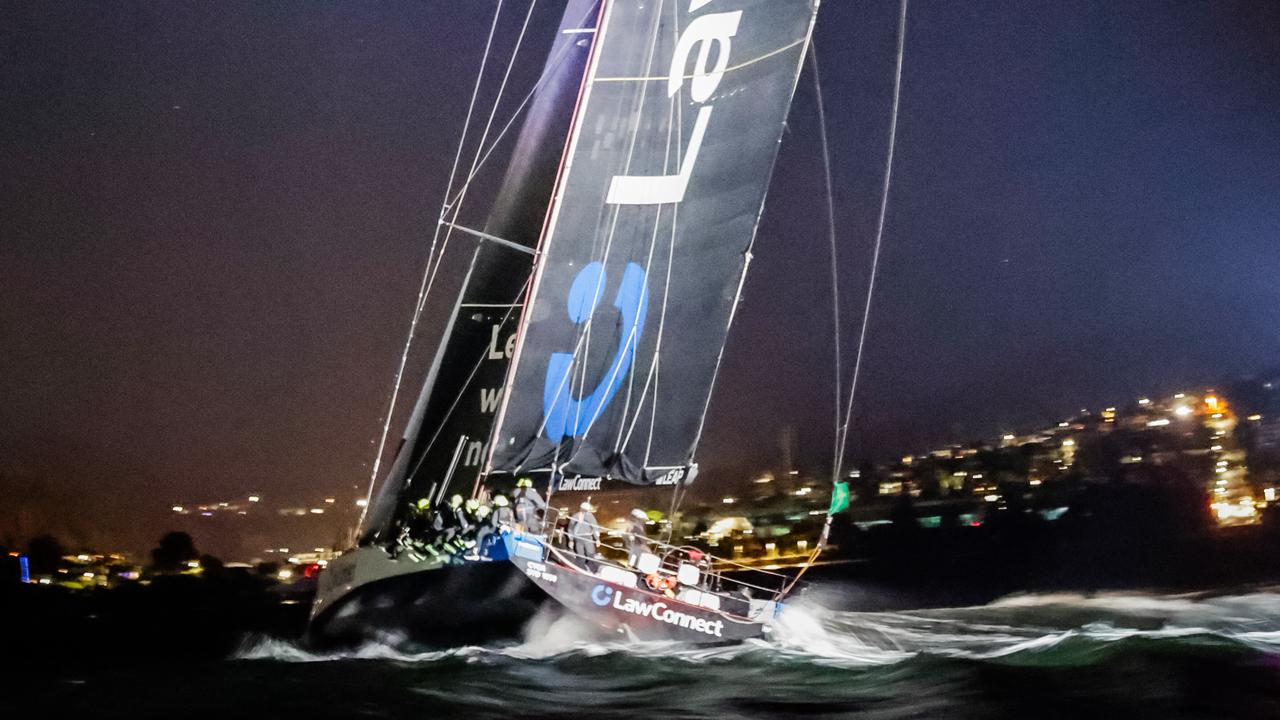Coronavirus Australia live news: How Pfizer delivered a vaccine in record time; Another case detected in Victoria
A pushy CEO and his team overcame unproven science, manufacturing bottlenecks and crazy deadlines — but the effort put severe strain on the company’s staff.
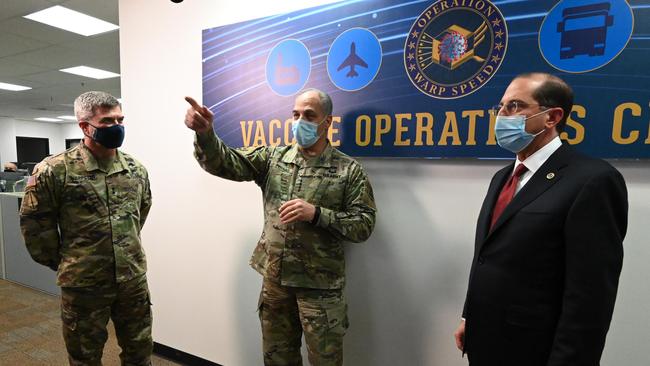
- Outrageous waste in hotel quarantine
- Victoria records another case in returned traveller
- Pfizer vaccine rollout begins in the US
- UN chief urges leaders to declare climate emergency
Welcome to The Weekend Australian’s rolling live coverage of the coronavirus crisis. Distribution of Pfizer’s COVID-19 vaccine is under way in the US as health authorities fret about the competing priorities of a mass vaccination program while still battling the pandemic. And in Victoria, another case of coronavirus has been detected in hotel quarantine.
Stephen Romeii 8.45pm: Writer’s opportunity knocks in lockdown
Ask writers how they coped with COVID-19 lockdowns and the running joke is: “Nothing changed. I stayed home and wrote.”
That can-do attitude has paid off for emerging Sydney writer Diana Reid, who decided to use the pandemic pause to write what will be her debut novel, Love & Virtue.
Reid, 24, has had success as a playwright, co-writing 1984! The Musical, which turns George Orwell’s totalitarian dystopia into a song-and-dance comedy. The play was in theatres in January and Reid hoped to take it overseas. When coronavirus ended that by shutting down the stage, she took a crack at writing a novel.
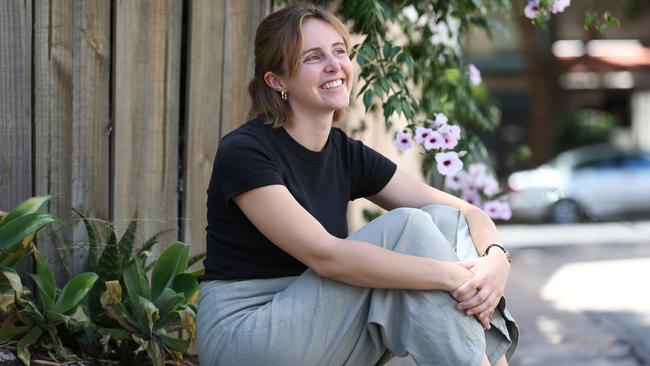
AFP 8pm: Merkel in crisis talks for tougher shutdown
Angela Merkel will hold crisis talks on Sunday with regional leaders of Germany’s 16 states to agree tougher curbs including the closure of shops ahead of Christmas, as coronavirus infections surge unabated.
The drastic measures hitting shops other than those selling essential goods would be imposed from Wednesday until at least January 10, according to a draft by the Chancellor’s office.
Schools could also be shuttered, sending pupils into homeschooling, while companies are requested to allow employees to work from home during the period.
Bavaria state premier Markus Soeder, who has been pushing for tougher measures, voiced support for the measures.
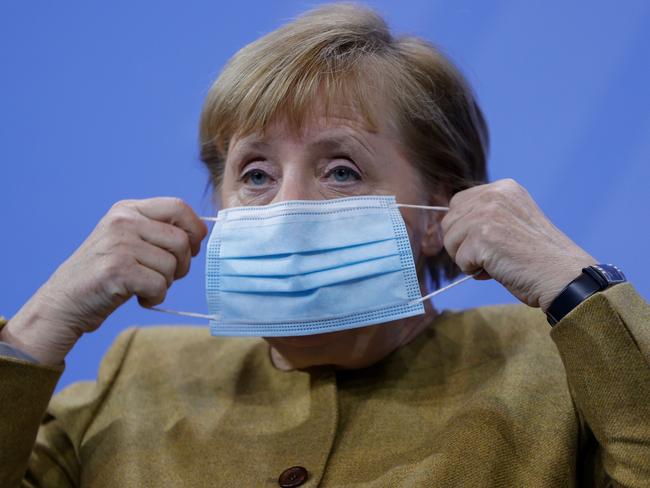
“The numbers are worse than ever, we mustn’t allow ourselves to get bogged down by individual measures,” he told Welt am Sonntag newspaper.
Along with Mrs Merkel, Mr Soeder has for weeks been seeking tougher restrictions, warning that the current round of shutdowns hitting theatres, cinemas, gyms and indoor dining was not far-reaching enough.
But the implementation of the restrictions are in the hands of individual states, and some regions where infection levels were lower had been resistant to impose tough curbs.
The mood, however, tipped over in the last week after Germany recorded new daily death tolls reaching close to 600.
The country’s disease control agency chief Lothar Wieler warned on Thursday that the infections trend had taken a worrying turn.
“The rise in numbers is worrying,” said Robert Koch Institute president Wieler, warning that after plateauing for a few weeks, “the course of infections could tip over again” into exponential growth.
Germany has imposed far less stringent shutdown rules than other major European nations after coming through the first wave of the pandemic relatively unscathed.
But Europe’s biggest economy has been severely hit by a second wave with daily new infections more than three times that of the peak in the spring.
Germany recorded another 20,200 new COVID-19 cases over the past 24 hours, reaching a total of 1,320,716 cases, according to RKI data published on Sunday.
Another 321 patients died from the disease from a day earlier, bringing the total death toll to 21,787.
READ MORE: ‘It’s all real now:’ Down to the wire after five years
AFP 7.15pm: US set for mass vaccine campaign as world toll nears 1.6m
The Pfizer-BioNTech COVID-19 vaccine was set to begin leaving the company’s Michigan factory on Sunday, ready to be injected into the arms of millions of the most vulnerable Americans as the global death toll approached 1.6 million.
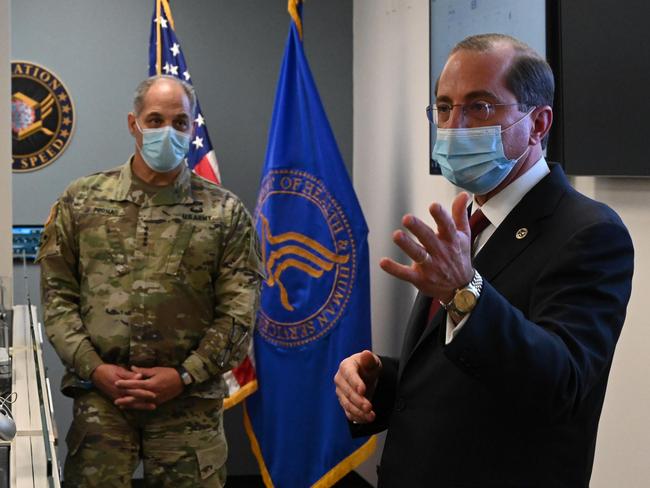
Doses will be shipped out in boxes containing dry ice that are capable of staying at -70C, the temperature needed to preserve the drug.
General Gus Perna, who is overseeing the massive logistical operation as part of the government’s Operation Warp Speed, likened the moment to D-Day, a turning point of World War II.
“I am absolutely 100 per cent confident that we are going to distribute safely, this precious commodity, this vaccine, needed to defeat the enemy Covid,” he said.
The imminent start of the mass vaccination campaign in the world’s hardest-hit country came as Italy overtook Britain as the European nation with the highest coronavirus death toll.
“I am worried about the two weeks of Christmas holidays. We are up against a dramatic pandemic which is ongoing — the battle still has not been won,” Italian Health Minister Roberto Speranza told a symposium as the country recorded 64,036 deaths, surpassing Britain’s 64,026.
READ MORE: Vaccine rollout gets shot in the arm
Pietro Lombardi 6.30pm: Naples Christmas stalls struggle for business
For generations, the Christmas season has brought throngs of visitors to Via San Gregorio Armeno, a historic street in the heart of Naples where artisans have made the city’s famous handcrafted Nativity scenes since the 1800s.
In the run-up to the holiday, the narrow street usually becomes a kaleidoscope of colours, languages and elaborate figurines that mix religious references with modern-day touches.
This year, Via San Gregorio Armeno is largely deserted, with just a trickle of shoppers browsing the scores of stalls.
“It’s heartbreaking to see the street in this condition,” said Lidia Zito, a longtime Neapolitan resident, as she walked by a shuttered store.
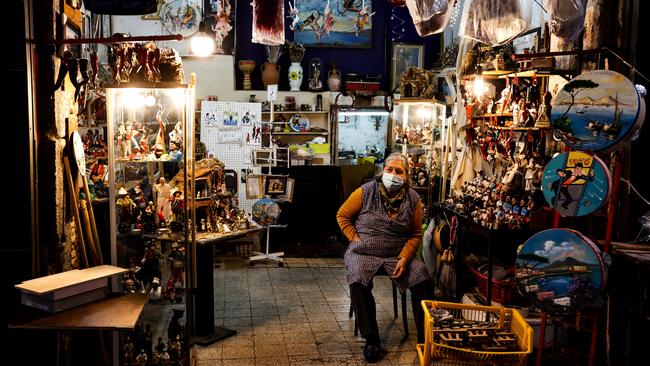
AFP 5.45pm: Indonesia arrests firebrand Islamist cleric
A firebrand Indonesian Muslim cleric has been arrested for allegedly breaching coronavirus restrictions after he held a series of sermons with tens of thousands of followers.
Rizieq Shihab’s arrest on Sunday came just days after Jakarta police shot dead six followers of his hardline Islamist group in a highway shootout.
Shihab will be detained for 20 days to prevent him from fleeing and destroying evidence, police said.
“Another reason for the detention is for him not to repeat the offence,” National Police spokesman Argo Yuwono said.
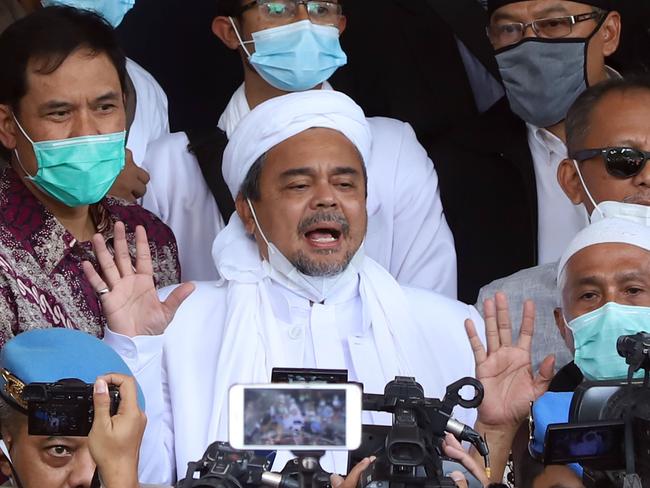
If found guilty, he could face up to six years behind bars for breaching coronavirus rules.
Shihab was welcomed by tens of thousands of followers at Jakarta airport on his return from exile last month, in violation of a COVID-19 ban on gatherings.
As dozens who attended that gathering subsequently tested positive for the coronavirus, police summoned Shihab several times for questioning.
Indonesia has reported more than 600,000 coronavirus infections and over 18,500 deaths, with authorities imposing nationwide restrictions to curb the spread of the disease.
Despite those restrictions, Shihab held sermons, a celebration of the birthday of Islam’s Prophet Mohammed, and his daughter’s wedding — all of which were attended by thousands of people.
The charismatic leader of the Islamic Defender Front, Shihab fled to Saudi Arabia shortly after police named him a suspect in a pornography case in 2017, and remained in exile for three years. Since his return, he’s called for a “moral revolution”.
His FPI is notorious for targeting night clubs and other establishments it deems “immoral”, and has also attacked minority Muslim sects it considers “deviant”.
He was among the main figures behind mass rallies in 2016 against the then governor of Jakarta, Basuki Tjahaja Purnama, over allegations that he insulted the Koran.
Basuki, who is Christian, was sentenced to two years in prison for blasphemy.
READ MORE: How Pfizer delivered a Covid vaccine in record time
Tim Shipman 4.55pm: Stores begin stockpiling food amid no-deal Brexit fears
British supermarkets are this weekend stockpiling food and other goods after being told by ministers that a no-deal Brexit is on the cards.
Food producers have warned there will be shortages of vegetables for three months and emergency planners predict that no-deal would spark panic-buying on a scale that could dwarf the coronavirus crisis.
In a sign of what might be to come, lorries were backed up for three miles on the A20 outside Dover yesterday, after Calais suffered 16 kilometre tailbacks on Friday. Hauliers blamed the jams in Kent on “stock-building”.
Health ministers have told suppliers of medicines, medical devices and vaccines to stockpile six weeks’ worth at secure locations in the UK.
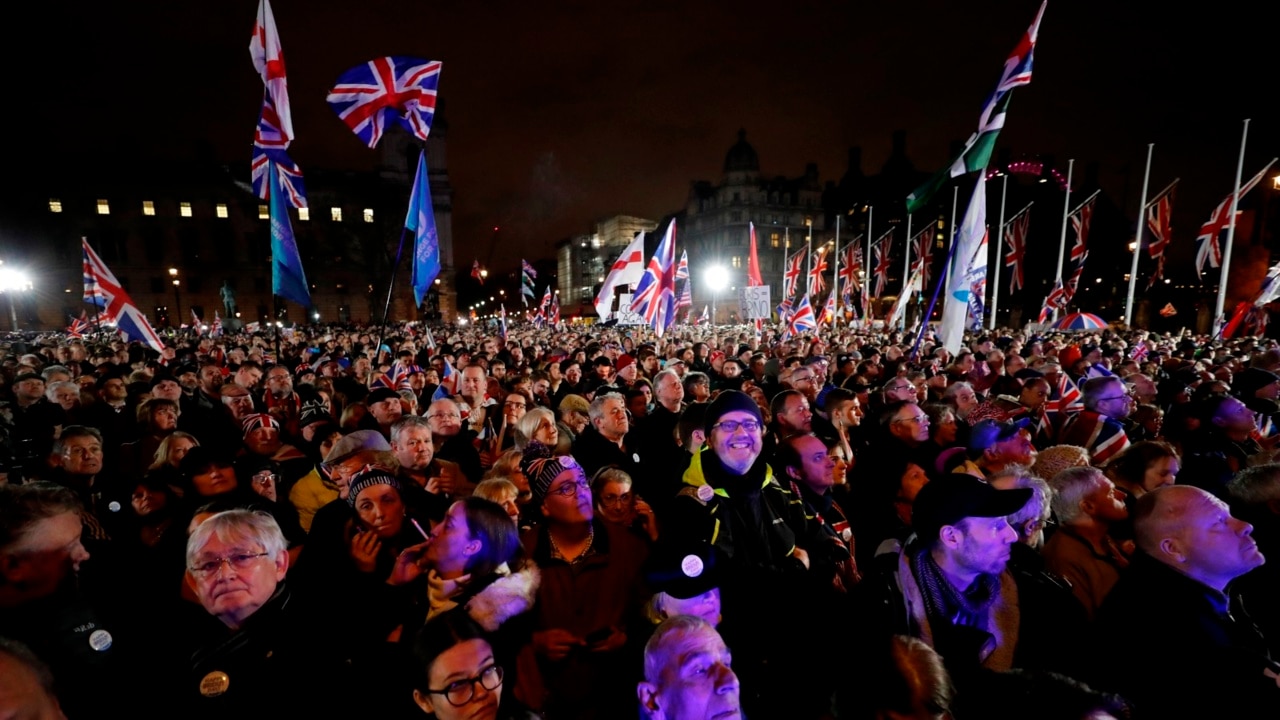
Boris Johnson is set to take control of planning from Michael Gove if Britain opts for no-deal, chairing a “super XO” exit operations committee to prepare the response.
The prime minister’s move comes amid fears that a trade deal will not be possible by the deadline at the end of today.
Talks between the two negotiators - Lord Frost and Michel Barnier - continued last night and will resume today. Johnson is also expected to speak today to Ursula von der Leyen, president of the European Commission. But a senior figure said the chances of a deal were no better than 20%.
Read the full story here.
Josh Glancy 4.20pm: Covid shreds the safety net for Washington’s homeless
COVID-19 is consuming Washington. In Congress, the two parties are stuck in their customary gridlock, trillions of dollars apart on a coronavirus relief package. Across the city, Rudy Giuliani, legal counsel to Donald Trump, has been released from the plush Georgetown Medical Centre after receiving a hefty dose of Regeneron, the antibody treatment that revived the president after his own brush with the virus.
Yet from the L Street underpass, the pandemic looks very different. Just a few blocks from Congress, nestled between the luxury 110K Apartments building and the Wunder Garten beer hall, is the capital’s most established homeless encampment. Nowhere is America’s gaping wealth chasm more apparent than in these few downtown blocks.
For the white-collar tribe - the lawyers, lobbyists and bureaucrats who make the city one of the world’s richest - the pandemic is an almighty nuisance, keeping them out of the office and away from the theatre.
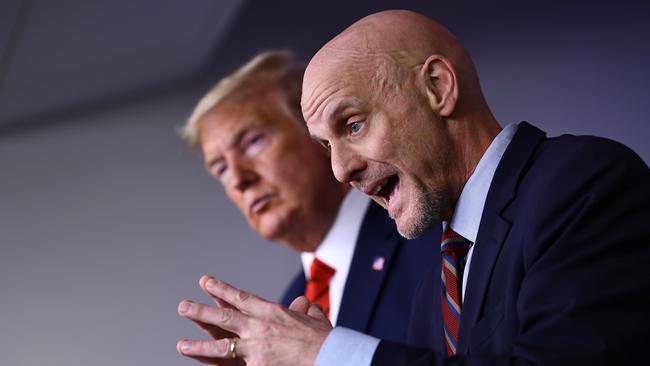
The virus has spread through nigh on the entire Trump administration, from the president and his family to a bevy of advisers, including both his election fraud legal representatives, Giuliani and Jenna Ellis.
But while the stricken denizens of Trumpworld receive the latest in cutting-edge medical treatment, Washington’s 7,000-strong, mostly African-American homeless population is faced with a far starker problem as winter deepens: head to the crowded shelters and risk illness, or stay out on the streets and risk freezing to death.
It is truly a tale of two cities. Food bank attendance is soaring, as is shoplifting. And as businesses shut and federal relief money dries up, more and more people are falling through America’s porous safety net. For Mama J, a longtime resident of the L Street underpass, to go anywhere near a shelter is unimaginable after so many years on the street. “I’m going to layer up and pray,” she said.
Read the full story here.
Anthony Piovesan 3.30pm: Pub staff to receive $1000 sign-on bonus
Online advertisements are offering hospitality workers across Australia sign-on bonuses of up to $1000, sparking concerns a labour shortage could mean a price hike in food and drinks for the sector.
Despite the ravaging pandemic and recession, restaurants, pubs and cafe owners can’t find workers.
In one example from Western Australia, the Victoria Park Hotel put out a job ad seeking qualified chefs and offered a $1000 sign-on bonus “upon commencement”.
“Candidates who apply for a position through this advertisement and are successful in gaining permanent employment with AVC between November 1 2020 and December 31 2020 will be eligible for a $1000 sign-on bonus upon commencement,” the ad says.
It also offered a $2000 retention bonus, “payable at three months employment”.
Victorian president of the Australian Hotels Association, David Canny, said the shortage could see venues try to recoup funds through how much they charge for their food and drinks.
“In desperate times, you do desperate things,” Mr Canny told Nine Newspapers.
”Some operators will see overpaying as a way of survival, getting through, filling rosters and being able to give people time off.
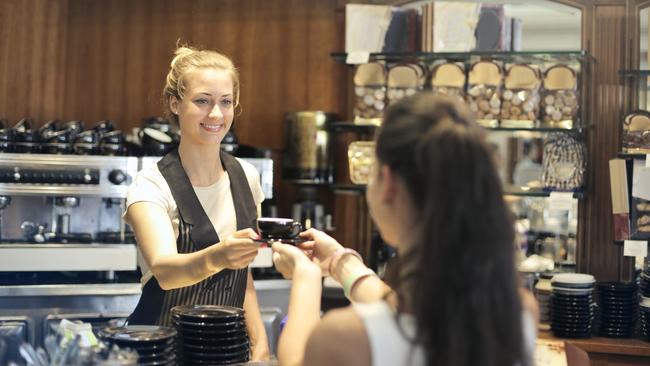
“Venues wouldn’t be able to absorb that [cost] … you could see prices forced up, absolutely.”
Mr Canny called on the federal government to allow people on Jobseeker to work shifts in hospitality, without losing their payments.
“That would incentivise people to get off the couch and come do their 15 or 20 hours a week,” he said.
“It’s the top-up staff that no one can seem to find … which would normally be from that pool of international backpackers and students, but we don’t have any.”
Mr Canny said there was huge demand in hospitality, particularly in Melbourne as the public flocks to eateries after months of lockdown.
He said industry figures estimated the demand for hospitality staff could drive up some wages by as much as 20 per cent.
READ MORE: CSL ‘knew of risk to vaccine trial’
Agencies 2.55pm: Trump bid to flip election stymied, scars remain
President Donald Trump’s false claims to have won the White House race have been rejected by the courts but have deepened the wounds in a bitterly divided nation and risk leaving long-lasting scars on American democracy.
“This kind of poison can really seep into a democracy and delegitimise how normal politics occurs in this country,” said David Farber, a history professor at the University of Kansas.
“We’re in an era in which the legitimacy of our institutions is being challenged like it never has been before except perhaps during the (1861-65) Civil War.” Ahead of the November 3 contest with Democrat Joe Biden, Mr Trump set the stage to challenge the results, claiming it would be “rigged” if he was not reelected.
Mr Trump repeatedly attacked mail-in voting, which was used more extensively by Democrats because of the coronavirus pandemic, alleging without evidence it was subject to fraud.
Despite getting seven million fewer votes than Biden and losing the Electoral College 306 to 232, the 74-year-old Trump has refused to concede.
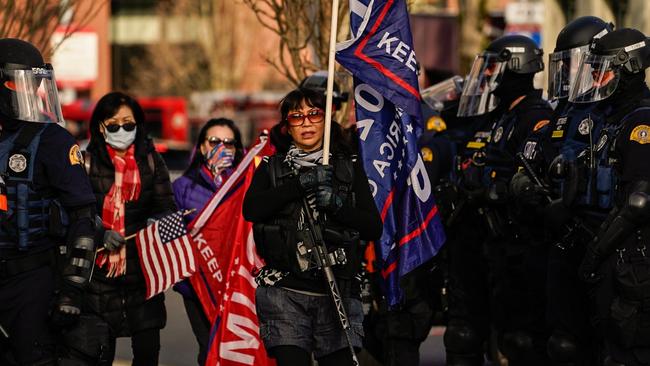
Mr Trump and his allies have filed more than 50 court cases alleging fraud in states where he lost narrowly —Arizona, Georgia and Wisconsin — and even some where the margin was significant — Michigan, Nevada and Pennsylvania.
The Trump campaign has lost every case with the exception of a minor one and the Supreme Court, which includes three justices appointed by Mr Trump, shot down what was seen as their last-ditch bid on Friday.
That case would have effectively disenfranchised millions of voters in four states where Mr Trump lost and was backed by 126 Republican House members, prompting expressions of concern by Democrats and some Republicans over the willingness of their fellow lawmakers to do Mr Trump’s bidding.
READ MORE: The real danger of an international trade war
Rachel Baxendale 2.05pm: Victoria’s arrivals cap ‘likely to be reviewed’
Seven days into its reset scheme, Victoria now has 946 return travellers in its hotel quarantine program, with another 87 expected to arrive on three flights on Sunday.
The total of 1,033 people who will have arrived since Monday is down slightly on the 160 per day or 1,120 per week cap set by the Andrews government.
Police and Emergency Services Minister Lisa Neville, who is in charge of the revamped scheme, said that of the 74 people currently housed in Victoria’s Novotel South Wharf “health hotel”, six had so far tested positive for coronavirus, 24 were symptomatic, and 24 had other complex health needs.
Ms Neville said the 160 arrivals per day cap was likely to be reviewed “probably before the end of January”.
She said Premier Daniel Andrews had raised the issue of transport of arrivals to and from hotel quarantine at Friday’s national cabinet meeting, amid concern after two German citizens were able to leave the queue for a bus to hotel quarantine in NSW and board a plane to Melbourne last week.
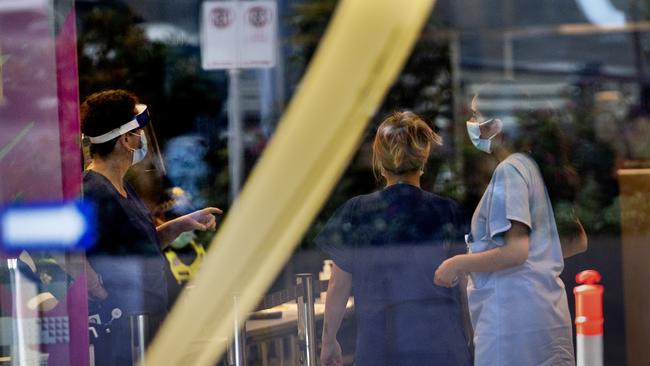
“There was no outcome from that, but we have pushed that because I think one of the biggest risks at the moment is that transport,” Ms Neville said.
Victoria is currently using the Novotel South Wharf to house international arrivals who have tested positive for coronavirus, have symptoms, or have other complex health needs, with all others housed at the nearby Pan Pacific hotel.
Ms Neville said work to upgrade ventilation at the Holiday Inn, which is intended to provide a third venue for housing international arrivals, was ongoing, with the hotel not expected to be needed until “after Christmas”.
“At this stage there has been no known case of any spread of the virus because of ventilation. However, we’ve taken no chances,” Ms Neville said.
“So in relation to the hot hotels, we had Alfred Health and also engineering to go through the two hotels to look at what we needed to do, and that’s why the Holiday Inn is being worked on at the moment, to make sure that that ventilation system is up to the standard that the Alfred hospital wanted.”
“We don’t need it yet, and currently we’ve only got 74 people who are in the health hotel at the moment. Our preparation is that we will get into using that after Christmas and it will be well and truly ready by then.”
READ MORE: Fighting the dragon — why our response to China is all wrong
Jared S Hopkins 1.25pm: How Pfizer delivered a vaccine in record time
Pfizer Inc. was months from proving its COVID-19 vaccine would even work when Chief Executive Albert Bourla got into a tense WebEx debate with his head of manufacturing.
It was a warm day in June and Pfizer was racing to develop a radical new vaccine based on a technology that had never been approved before. Mr. Bourla and his team were so optimistic they had committed hundreds of millions of dollars to build a global manufacturing network.
Mr. Bourla, speaking from his suburban New York home during one of Pfizer’s twice-weekly meetings on the project, told the team he wanted them to increase commercial production at least 10-fold.
“Why can’t we make more and why can’t we make it sooner?” Mr. Bourla demanded. Mike McDermott, who oversees Pfizer’s global manufacturing network, pushed back. His team already was working furiously, he said.
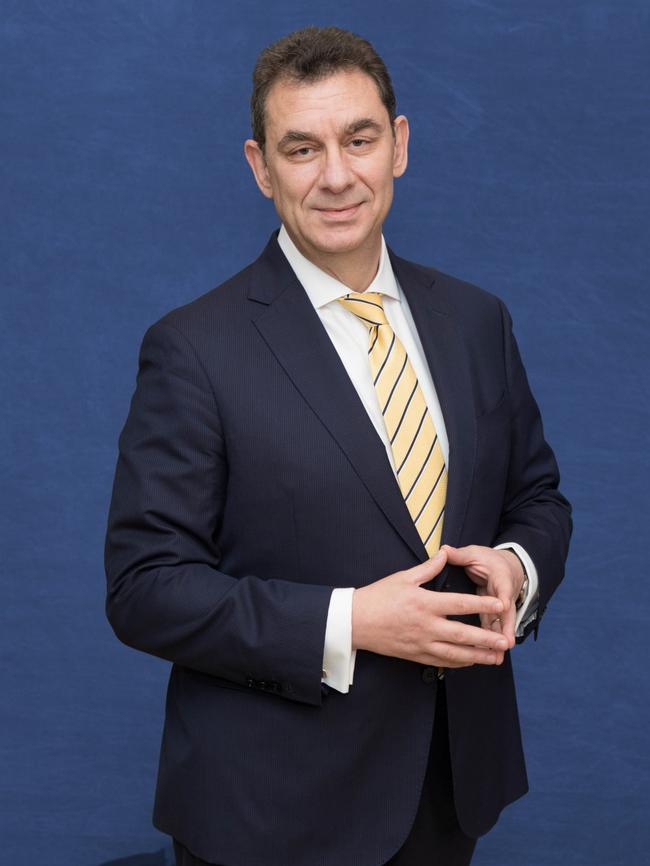
“What we’re doing already is a miracle,” he said he told Mr. Bourla. “You’re asking for too much.” Even for jaded pharmaceutical scientists, what happened next was little short of miraculous. U.S. health regulators Friday night authorised the COVID-19 vaccine developed by Pfizer and its German partner BioNTech SE. The shot is already in U.K. use and will be the first given in the U.S., capping the fastest vaccine development ever in the West.
How the drugmakers pulled off the feat, cutting the typical time from more than 10 years to under one, partly stems from their bet on the gene-based technology.
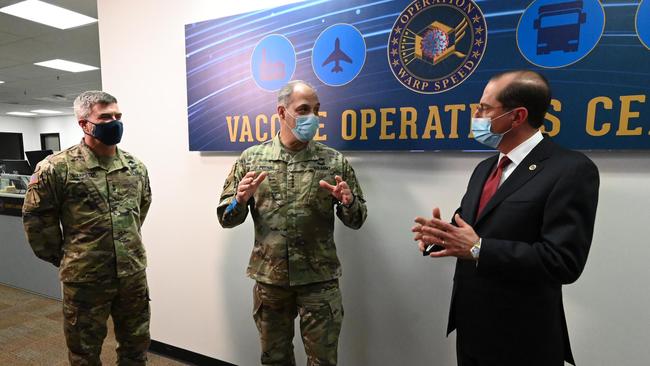
As the inside story shows, it was also the product of demanding leadership, which bordered on the unreasonable. From urging vaccine researchers to move fast to pressing the manufacturing staff to ramp up, Mr. Bourla pushed employees to go beyond even their own ambitious goals to meet COVID-19’s challenge.
Pfizer couldn’t meet every target set by its chief executive. Mr. Bourla wanted the vaccine done by October and as many as 100 million doses by year’s close, enough for 50 million people. Instead about half that will be produced.
Read the full story here.
Sarah Meddings 1pm: Wrexham’s hard workers pump out miracle vaccine
At a nondescript warehouse on an industrial site in north Wales, the final stage in a process that could transform Britain’s prospects next year is taking place. Millions of doses of a vaccine for Covid-19 are running off a production line. Vials are being filled with the precious fluid and boxed up for distribution.
This factory, owned by the Indian drug-maker Wockhardt - whose name was chosen to sound like “work hard” - is the final step of a process that began 10 months ago in an Oxford laboratory. When UK prime minister Boris Johnson visited the plant last month, he said it could provide “salvation for humanity”. The UK government has reserved one of the production lines for 18 months, enabling it to guarantee a supply of vaccine to fight the virus.
Until now, the Wrexham site has been a little-known outpost of the Indian giant, owned by pharmaceutical tycoon Dr Habil Khorakiwala. This year, it has become a vital piece of the coronavirus vaccine puzzle.
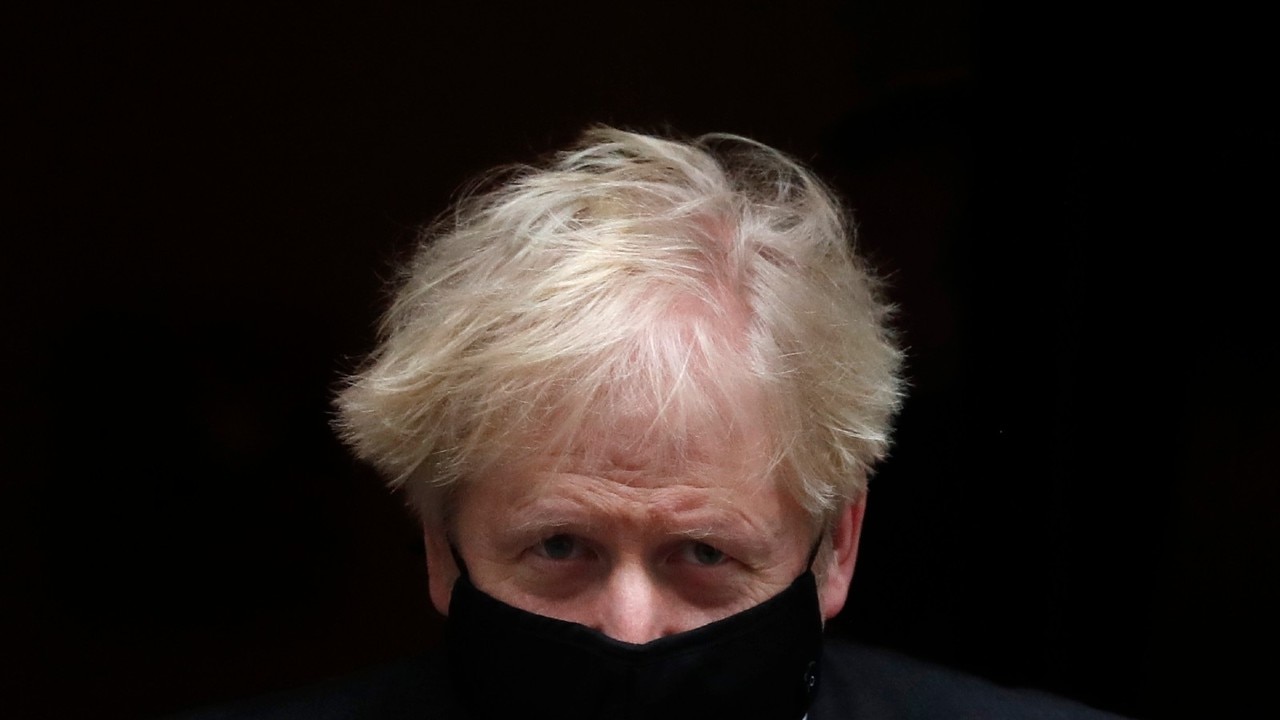
Speaking after Johnson’s visit, Khorakiwala, 78, said the government contract reflected Wockhardt’s “ongoing commitment to fight against such a pandemic of global human importance”, boasting that the business had the capacity to produce one billion doses.
This is Britain’s contribution to the global immunisation effort. In less than a year, the Oxford vaccine has been pushed out of the lab and into clinical trials. If approved, it will soon be shipped to GP practices and mass vaccination centres. Unlike the Pfizer/BioNTech vaccine, which has already been approved and costs £15 ($AU26) a dose, the Oxford version costs about £3 ($AU5.30). It is also much easier to store and transport - the Pfizer/BioNTech vaccine must be kept at an extremely cold temperature. Ministers have reserved 100 million doses for the UK.
READ MORE: UK Navy on standby as Brexit deadline looms
Emily Cosenza 12.10pm Quarantine bungle devastates QLD families
A rule few people knew about has been blamed for an embarrassing blunder that saw New Zealanders whisked away to quarantine, after arriving in Queensland on Saturday to “open borders”.
Only New Zealanders who have been in their home country for the past 14 days, and arrive on a “quarantine-free” flight, are allowed to freely travel around Queensland without quarantine.
As Queensland is only open to New Zealand, this means only passengers on flights direct from the country are able to enter, providing only people who have spent the last 14 days in NZ are on board.
Premier Annastacia Palaszczuk said travellers arriving from New Zealand as of 1am on Saturday would no longer need to quarantine during an appearance on breakfast TV on Friday.
“We are hoping that eventually New Zealand will not have to do that hotel quarantine upon return, and then there would be free-flowing movement between the two,” she told the Nine Network.
But Qld’s chief health officer Dr Jeannette Young corrected Ms Palaszczuk’s blunder and said only those who travelled to the Sunshine State from New Zealand on a quarantine-free flight would not be required to quarantine on arrival.
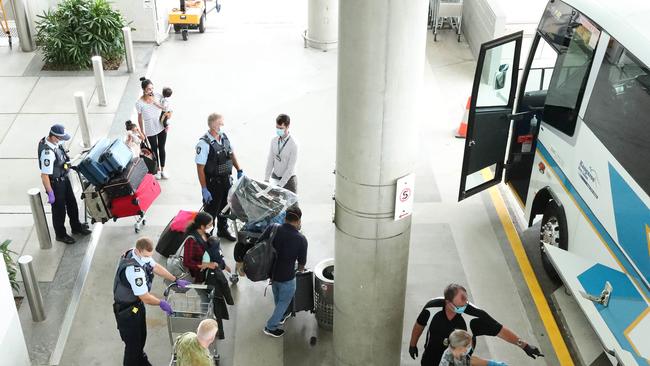
“There is a national protocol that Queensland has adopted, which splits people on flights who have only been in safe travel zone countries, versus those who have also been in other countries,’ she said.
Dr Young further explained anyone not on a quarantine-free flight would still need to complete 14 days mandatory quarantine.
“We have a New Zealand flight arriving in Brisbane (Saturday) that isn’t a quarantine-free flight, which means those people will need to complete quarantine.”
The first quarantine-free flight to Queensland will not land until Wednesday.
READ MORE: The best musical moments and releases of 2020, the COVID year
Agencies 11.30am Italy has Europe’s worst virus death toll
Italy on Saturday became the European country with the highest pandemic toll, its new total of 64,036 deaths overtaking Britain, according to an AFP tally.
The Italian health ministry said that 649 people had succumbed to the virus in the previous 24 hours and that 19,903 new cases had been diagnosed.
Worldwide, the United States has reported the highest number of Covid-19 deaths, with 295,539 as of Saturday at 1100 GMT, followed by Brazil, India and Mexico.
According to the AFP tally for Europe, Italy overtook Britain, which has reported 64,026 deaths and is followed by France with 57,567 and Spain with 47,624.
Italy was the first European country to suffer a wave of infections earlier this year, and imposed a nationwide lockdown against what then was a new and terrifying deadly virus.
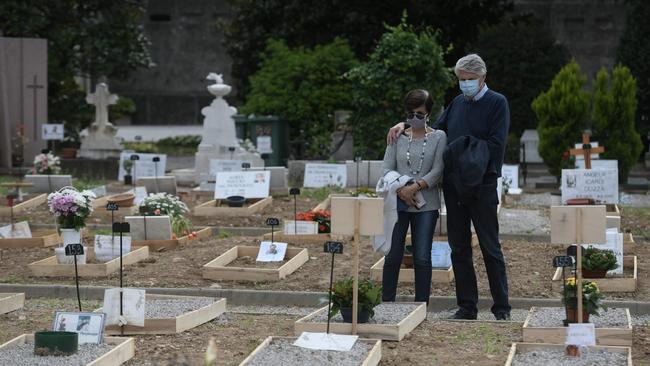
The UK’s toll overtook that of Italy on May 6, with close to 30,000 fatalities, and for a while over the summer the southern European nation appeared to have weathered the storm.
But despite the introduction of mass testing, cases began rising again in early autumn, as they did in many other nations -- and deaths inevitably followed.
Italy’s national medical association said Friday that a total of 251 doctors have now died from the virus.
The death rate per 100,000 inhabitants in Italy -- at 104 as of December 10 -- is one of the highest in the world.
READ MORE: How COVID-19 has changed the domestic paradigm
Rachel Baxendale 11.05am: Vic hotel quarantine case is boy under five
Victoria’s most recent case of coronavirus has been diagnosed in a boy aged under five, who is in hotel quarantine with his parents, state health authorities have confirmed.
The Department of Health and Human services said on Sunday the boy and his parents were among a total of six people in Victorian hotel quarantine who have been diagnosed with internationally acquired cases of the virus.
It has been 44 days since Victoria recorded a new locally acquired case.
“(The boy’s) parents, who have also been diagnosed with coronavirus, had already been interviewed through the quarantine process and no further public health actions were required,” DHHS said.
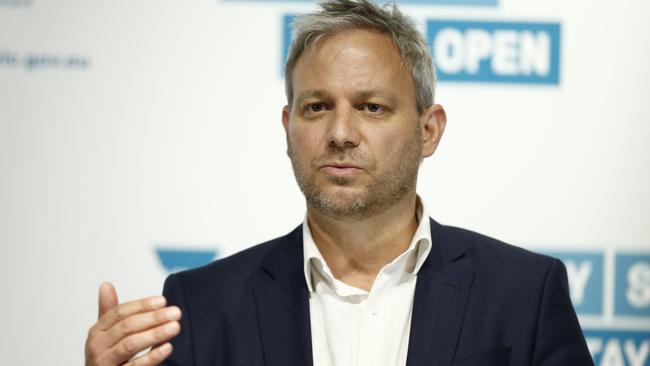
There have now been a total of 20.351 confirmed cases in Victoria since the pandemic began, and 28,025 nationwide.
“These positive results are to be expected, and our quarantine system has been designed on the premise that we would have return travellers test positive,” Victorian Chief Health Officer Brett Sutton said.
“While we’d all prefer there were no active cases, changes made to strengthen the system will ensure that we manage this in a way that keeps returning travellers, the workers caring for them and the Victorian community as safe as possible.”
READ MORE: Vaccine failure must not undermine public trust
Erin Lyons 9.55pm: Outrageous trend in hotel quarantine
Australia’s $10 billion food waste shame extends to Sydney’s hotel quarantine system, with thousands of kilos of food being sent straight to landfill after perfectly healthy travellers check out.
From bottles of water, to packets of noodles, breakfast cereals and fruit, you only need to take one glimpse at Northern Beaches mother Sarah Morris’s garage to get a grasp of the true crisis.
The mother-of-three can no longer park her car in the garage of her Warriewood home because it’s full to the brim with leftover goods from quarantine hotel guests which she uses to help feed the city’s homeless community.
“It’s a lot of work, but the waste is staggering,” she said.
She was encouraged to start her charity project, AOK Community Outreach, by friend and Australian actress Ajay Rochester who had just returned home from Los Angeles and spent two weeks in Sydney’s Radisson Blu Plaza Hotel.
During her stay, she witnessed the shocking amount of food going to waste via posts on social media groups.
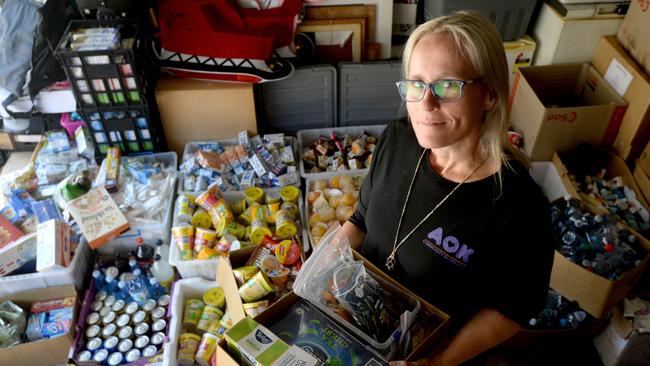
Ms Rochester said she joined several Facebook pages for Australians in quarantine, where she shared the charity concept to thousands of members, many of whom jumped on board.
“What I noticed more than anything (via photos posted to Facebook by returned travellers) was the huge piles of food going uneaten, unopened and turned into landfill,” she said.
“It broke my heart. People were piling up all the food they weren’t eating and it’s literally being thrown out.”
Ms Morris now makes the hour-and-a-half return trip from her Northern Beaches home to the city centre at least twice a day just to pick up food parcels from guests as they check out. She has met with 125 people over the last two months alone.
She said many hotels have been reluctant to get on board, with management citing rules in the Food Standards Act which prevent them from doing so.
READ MORE: Elon Musk leads gold rush out of California
Rachel Baxendale 9.30am: Victoria records another case in hotel quarantine
Victoria has recorded one additional case of coronavirus in hotel quarantine, bringing to six the total number of active COVID-19 cases in the state.
All six are in hotel quarantine, and it has been 44 days since Victoria had a new locally acquired case.
As of Sunday, there are 799 returned travellers in hotel quarantine in Victoria, after the program reopened on Monday.
There were 6,233 tests processed in the 24 hours to Sunday.
Yesterday there were 0 new local cases, 0 lost lives, 1 internationally acquired & in quarantine case. There are 6 active cases. 6,233 results were received.
— VicGovDHHS (@VicGovDHHS) December 12, 2020
More info: https://t.co/lIUrl0ZEco#COVID19VicData #EveryTestHelps #StaySafeStayOpen pic.twitter.com/biZ4l7IPoD
READ MORE: ‘Dangerous weather’ — state to be smashed
Dow Jones 9am: US vaccines ready for shipment, timing ‘couldn’t be worse’
Pfizer Inc. is packing boxes with thousands of its COVID-19 vaccines for shipment around the US, as hospitals gear up to give shots while also confronting the surging pandemic.
Trucks carrying the fragile cargo at minus-94 degrees Fahrenheit will start rolling out of Pfizer plants in Michigan and Wisconsin on Sunday. Doses are scheduled to start arriving at hospitals on Monday.
Health-care workers treating COVID-19 patients, nursing-home residents and perhaps others could start getting inoculated soon thereafter, though it might take a day or two for facilities to train staff and begin injections.
The rest of the population will have to wait, as the drugmakers produce and ship more of the doses.
After the fastest development of a vaccine ever recorded, distribution of the shots kicks off an equally formidable challenge: a monthslong inoculation campaign not seen since efforts to eradicate the polio virus.
“People should not forget how extraordinary it is that we are even talking about having a vaccine by mid-December at all. In January, I don’t think anybody thought this was feasible,” said Kelly Moore, associate director of immunisation education at the Immunisation Action Coalition.
Initial supplies will be limited. Pfizer projects it will deliver 25 million doses to the US this year, including 2.9 million doses the first week. Inoculation requires two doses three weeks apart, so only half that many people will be vaccinated. States will decide where many doses go.
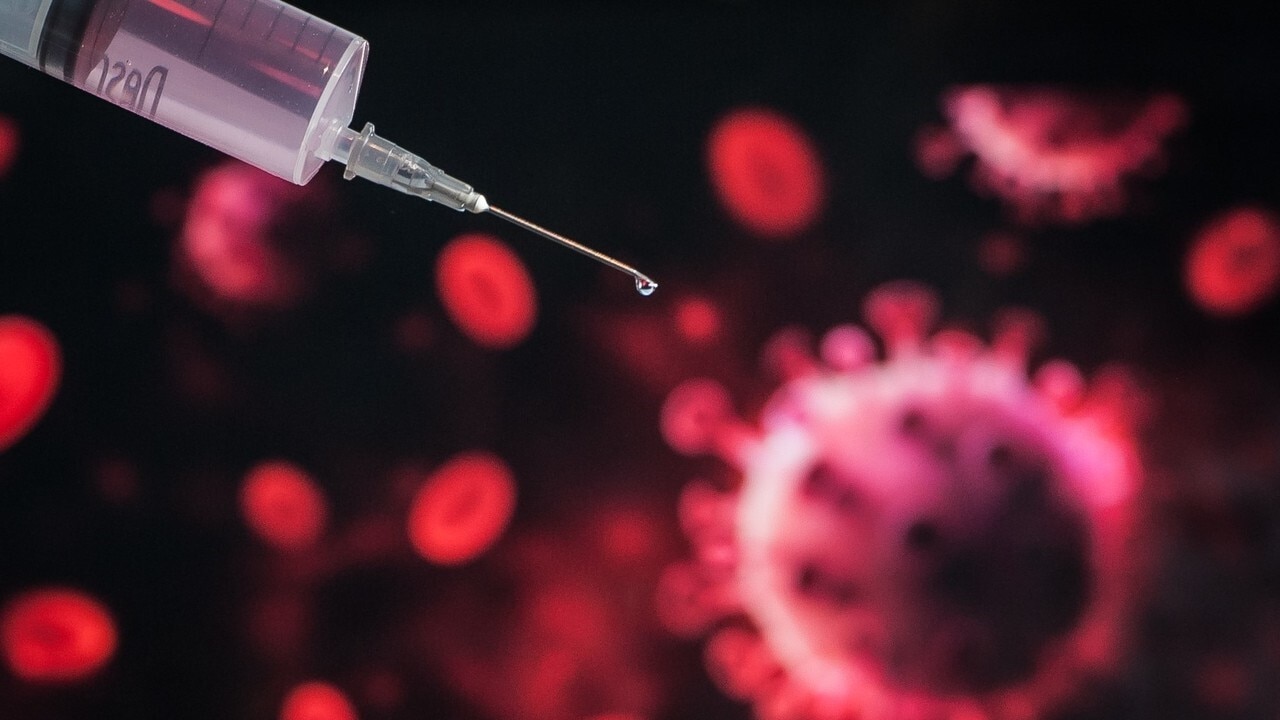
Gen. Gustave Perna, chief operating officer of the federal government’s Operation Warp Speed vaccine effort, said Saturday the initial supplies will be distributed among 636 locations nationwide, with 145 sites expected to get the doses Monday.
Another 425 sites should receive deliveries Tuesday, while the remaining 66 sites are slated to get their supplies Wednesday, Gen. Perna said.
Presbyterian Healthcare Services, the largest health system in New Mexico, braced for vaccinating employees at the same time it is being stretched due to a surge in COVID-19 cases.
Presbyterian’s chief patient safety officer Dr Jeff Salvon-Harmon said he was amazed at how fast the vaccine had been developed, but the timing was a double-edged sword in New Mexico.
“On the one hand, the risk is greatest right now to our caregivers and everyone who works here because there is so much Covid in our facilities,” he said. “But the timing couldn’t be worse in terms of competing priorities for manpower.”
Read the full story here.
Agencies 8.30am: UN chief urges leaders to declare ‘climate emergency’
UN chief Antonio Guterres on Saturday urged world leaders to declare a “state of climate emergency” and shape greener growth after the coronavirus pandemic, as he opened a summit marking five years since the landmark Paris Agreement.
The Climate Ambition Summit, being held online, comes as the United Nations warns current commitments to tackle rises in global temperatures are inadequate.
The commitments made in Paris in 2015 were “far from enough” to limit temperature rises to 1.5 degrees Celsius, the UN secretary-general said in his opening address to the summit, which is co-hosted by Britain and France.
“If we don’t change course, we may be
headed for a catastrophic temperature rise of more than 3.0 degrees this century,” he said.
“That is why today, I call on all leaders worldwide to declare a State of Climate Emergency in their countries until carbon neutrality is reached,” he added, arguing the recovery from COVID-19 presented a rare opportunity to recalibrate growth.
British Prime Minister Boris Johnson told the climate summit that a traumatic year of pandemic was ending with the hope of vaccines coming on-stream.
“My message to you all is that together, we can use scientific advances to protect our planet, our biosphere against a challenge far worse, far more destructive, than even the coronavirus pandemic,” he said.
For its part, Britain was acting on climate not because it was a nation of “mung bean-eating eco freaks” but because scientific progress would allow the creation of “millions” of green jobs, Johnson added.
READ MORE: Britain headed for a Brexit for the true believers



